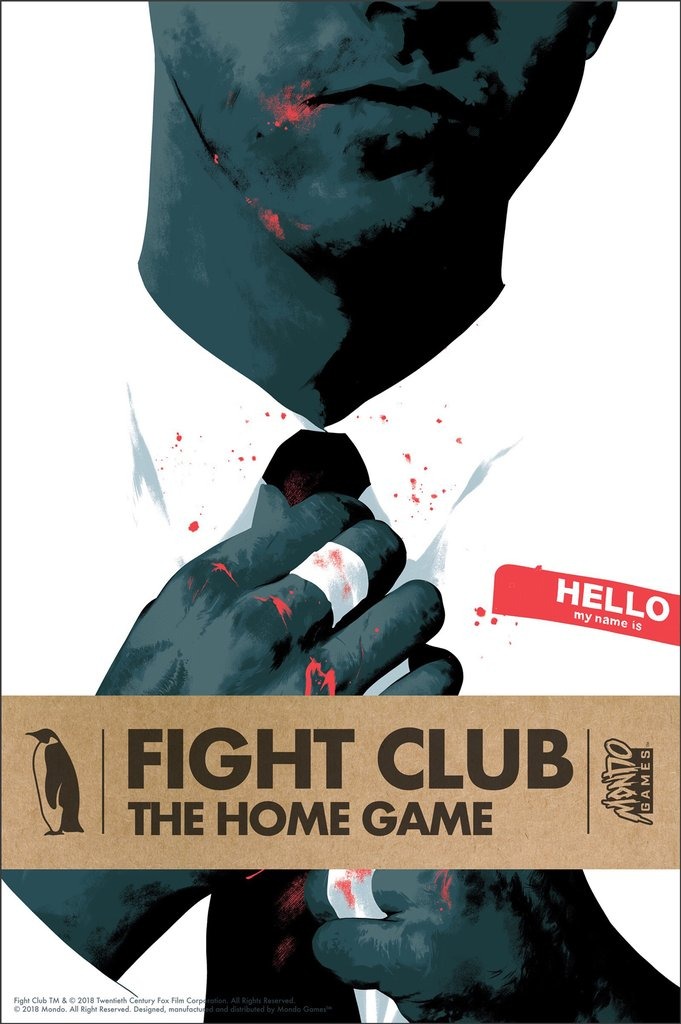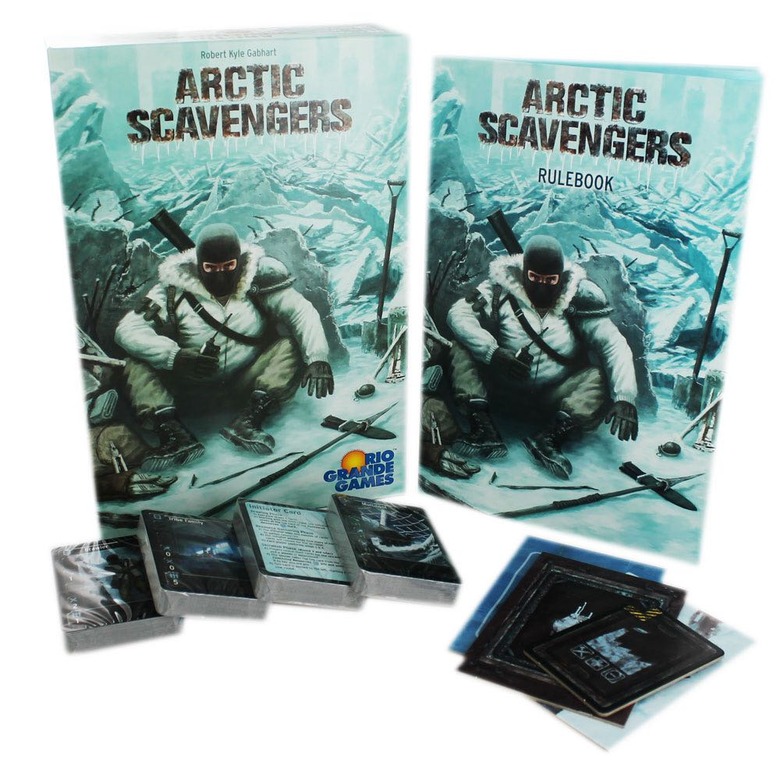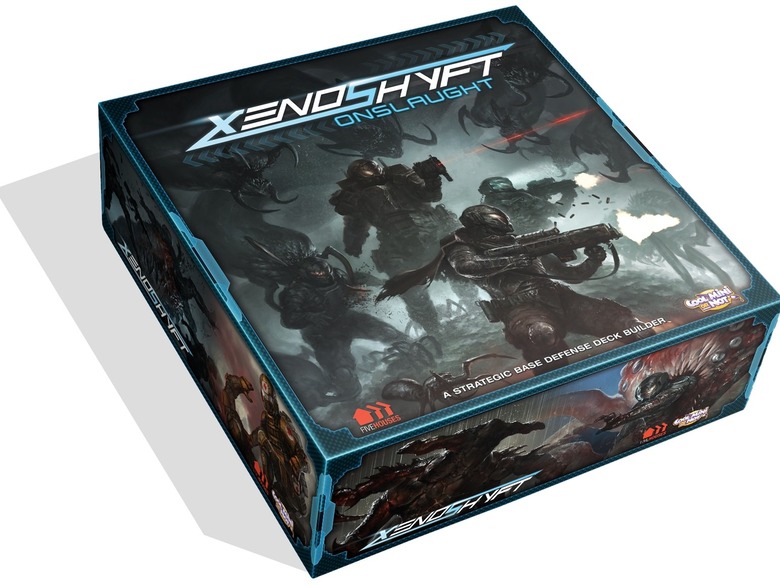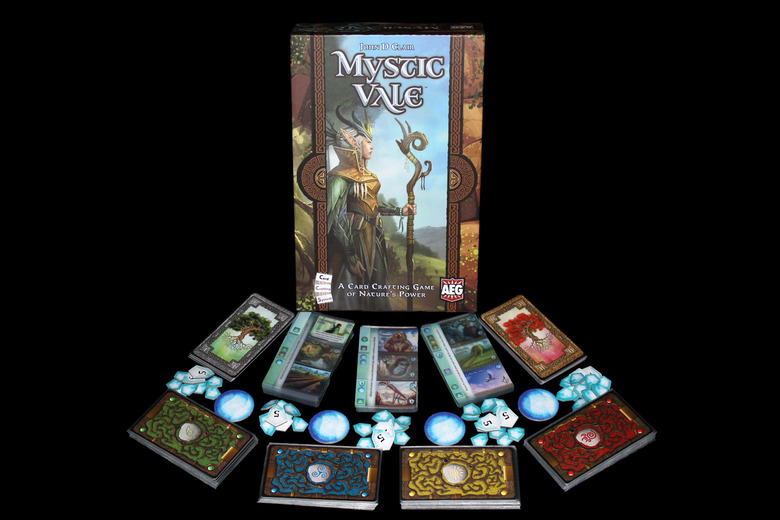Mondo's 'Fight Club' Card Game Sounds Like A Refreshing, Thematic Twist On A Familiar Concept (Plus, Other Card Games Movie Fans Might Love)
(Welcome to Cardboard Cinema, a feature that explores the intersection between movies and tabletop gaming. This column is sponsored by Dragon's Lair Comics & Fantasy in Austin, Texas.)
I'll be perfectly honest: when Mondo first announced that they were making a Fight Club card game, I shrugged. Maybe it's because I'm used to movie license board games being typically bad. Maybe it's because the fandom surrounding David Fincher's 1999 classic has increasingly proven itself to not understand the film's message. But I was expecting a simplistic, "take that" game where players throw cards at each other to win fistfights in a basement. You know, everything that the movie isn't really about.
So color me impressed that the Fight Club card game looks to be a more accurate riff on the film's concepts than I imagined. Fight Club: The Home Game is a two-player deck building card game where each player takes on a personality battling over control of one mind, as represented by the spread of cards in the middle of the table.
Fight Club Card Game Details
Mondo revealed the details on their official site, including this very cool description of the gameplay:
Take on the role of either The Narrator or Tyler Durden as you play a game of tug of war with dual-use cards available in a shared draw row. The Narrator side feeds the need to collect, gather, and nest, while the Tyler side enables destruction, mayhem, and ultimately letting go by hitting bottom on a shared tracker both players struggle to dominate.
The game, which includes 140 cards, is designed by Luke Byers & Jay Shaw, with cover art by Mondo regular Matt Taylor and interior art by Shaw.
Honestly, I feel a little foolish for doubting Mondo on the thematic front. Although they're still best-known for their gorgeous movie posters, this is a company that has always understood the films and characters and pop culture concepts they're hired to depict. Real movie nerds work at Mondo, and those movie nerds clearly thought long and hard about what makes Fight Club, well, Fight Club when they worked on this design. The tug-of-war between civilization and chaos, the loss of control, the battle of will against your darker self...this game looks to tap into those concepts rather than letting you simulate getting punched in the face and I'm all about that.
I'll be honest: I don't disagree with our own Peter Sciretta when it comes to Mondo's first baby steps into the world of tabletop gaming. While he wasn't fond of their board game adaptation of The Thing and is hesitant about their future games, I found it to be a blast, the kind of game whose flaws could be overlooked if you filled the table with the right personalities. The Thing has atmosphere to spare, perfectly capturing the grim mood of John Carpenter's iconic movie even when a few creaky game mechanics threaten to throw it into disarray. The biggest issue with The Thing wasn't theme or art – it was a very good, somewhat flawed design that entered an arena (hidden traitor amongst players working together designs) already filled with games that are considered near-perfect.
There are steps Mondo can take to make themselves better known to the board game community (Peter covered them very well in the link above, so I won't repeat them here), but they're one step ahead of the competition when it comes to recognizing that movie-based board games should evoke what makes the original material so special. If they can back that up with gameplay going forward, they could emerge as a major player in this market.
Fight Club: The Home Game is due out in September.
What is a Deckbuilder?
Okay, what if you got this far because you're a Fight Club fan and not a tabletop gaming fan? What if you know nothing about board and card games? What is a deckbuilder, even? It's pretty simple...and it's one of the most popular board game genres of the past decade.
In a deckbuilder, players create decks of cards to achieve goals, using their resources to purchase new cards from a shared market in the middle of the table. Purchasing the right cards can lead to making all kinds of effective combos, increasing your ability to earn more resources, purchase more cards, and ultimately win the game.
If that sounds fairly dry...well, it is. On paper. The joy of a deckbuilder is the combination of theme and strategy. What does your hand of cards represent? Which card is valuable enough that you must seek it out now and what can wait? Some games, like the ever-popular medieval-themed Dominion (the grand-daddy of deckbuilers) are generally relaxing games of coaxing fun combos out of your hand of cards. Others are more cutthroat and involve you directly attacking other players. Fight Club: The Home Game looks to be a particularly aggressive deckbuilder, which players battling over the shared pool of cards (i.e., the mind they inhabit) and attempting to one-up each other at all costs.
Other Options for Movie Fans
Okay, so what if you don't want to wait for Fight Club and want to try some games now? Or what if you're intrigued by deckbuilders but don't care for the Fight Club theme? I've got you covered. Here are three of my personal favorites, each of them offering a unique spin on this formula.
Arctic Scavengers
One of the most underrated games in my collection, Arctic Scavengers isn't shy about borrowing the basic structure of every other deckbuilder out there. If you've played any others, you'll learn this one in about two minutes. And if you're new to the genre, you'll learn it in about five minutes. What's important is that the theme is rad as hell and allows you to live our your fantasy of ruling the most badass post-apocalyptic tribe possible.
Set in a future where a second Ice Age has destroyed civilization as we know it, Arctic Scavengers sees players recruit new soldiers, workers, warriors, and families into their tribe by acquiring them from the middle of the table. But it's all a game of balance. Do you seek out that guy with the machine gun because he can defend you in a fight, or do you seek out the refugee family that will weigh down your deck and make you more susceptible to attack, but offer you more points in the end? You must make those decisions as you battle the other players for the most valuable resources.
For Fans of: The Road Warrior
Xenoshyft: Onslaught
Don't let that terrible title fool you. Xenoshyft: Onslaught is terrific deckbuilder and one with a twist: it's a cooperative game, meaning that all players work together, building their decks to complement one another and battle the game itself. The players are military commanders at human mining bases on an alien planet. The game itself is the pissed-off populace of native wildlife, which storms your base every round to kill and destroy. The cards in the middle are the soldiers, weapons, and upgrades you can add to your hand to bolster your defenses and hang on by the skin of your teeth.
The cooperative angle makes Xenoshyft a blast of fresh air. So many deckbuilers are about building your deck in isolation – this one is about taking about your decisions out loud, debating who needs which resources and making sacrifices from your hand to guarantee that your friends don't fall. And because it's cooperative, it's blisteringly difficult. I've yet to win a game and the giant bugs have always overwhelmed my defenses and crushed my base. But that doesn't matter. Because I'll win next time. And my friends will be there to help me out.
For fans of: Starship Troopers
Mystic Vale
Do you want to play a game that isn't about killing? How about a game that is actually about restoring life and valuing nature? Mystic Vale could've been a snooze, but it's a quiet and innovative thrill, utilizing one-of-a-kind game mechanics to place you in the shoes of druids using their powers to bring a beautiful valley back from the brink. You will plant trees. You will summon creatures. You will calmly gather points and have a relaxed time because this is one of the most non-competitive games you will ever play. There can only be one winner, but everyone will have a chill time at the table.
But here's what makes Mystic Vale brilliant and one of the most innovative deckbuilders out there. While most games of this type see you acquiring new cards and expanding the size of your deck, the number of cards you have never changes in this game. Instead, you have a set number of cards, each of them in a slightly-too-large plastic card sleeve. You don't buy new cards. You buy clear plastic upgrades that you slide into the sleeve, literally adding new abilities to blank cards as you play. Thematically, it represents nature returning. Mechanically, it means you customize individual cards in your deck rather than the deck itself. All around, it's brilliant.
For fans of: the quieter moments of Lord of the Rings




